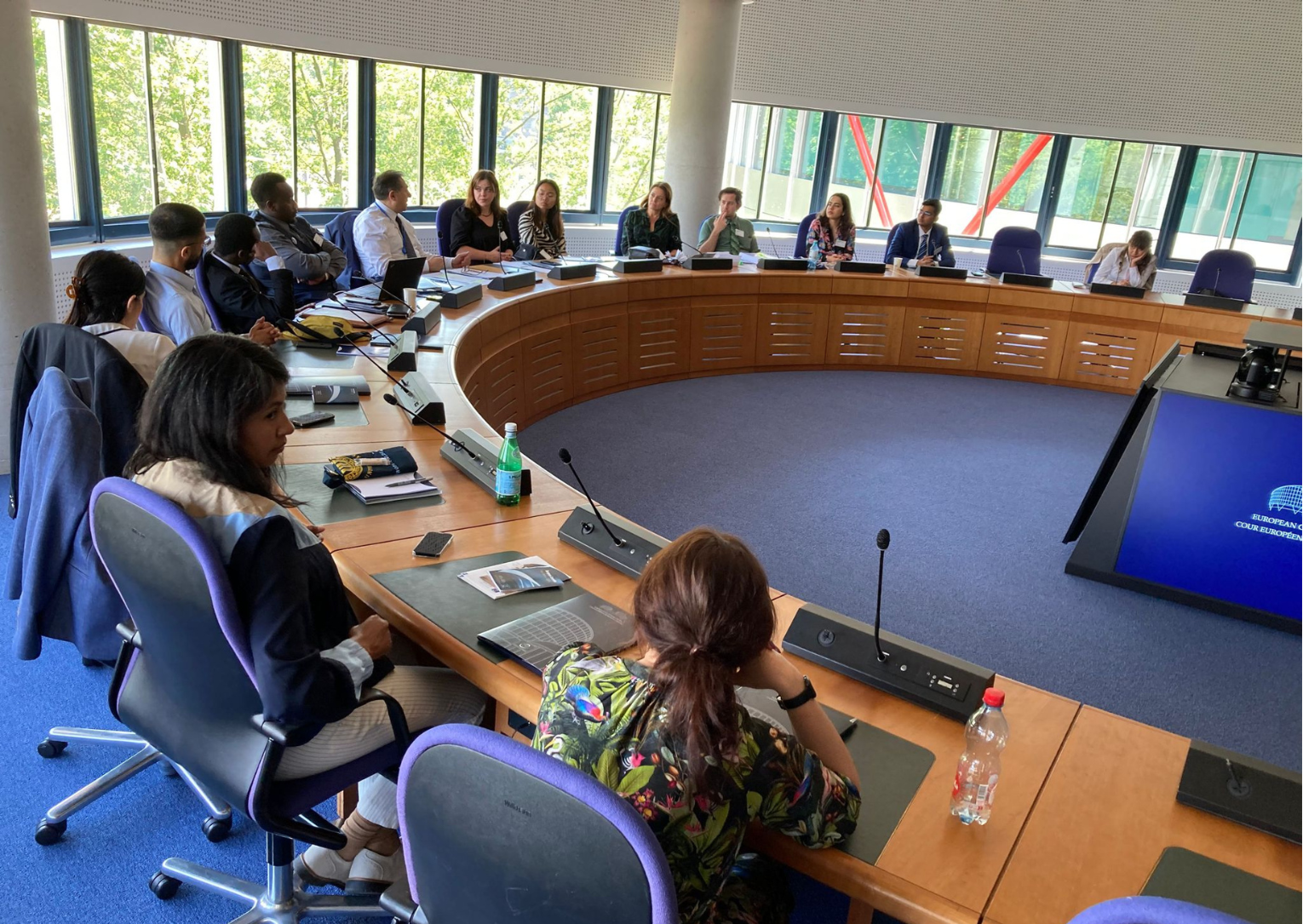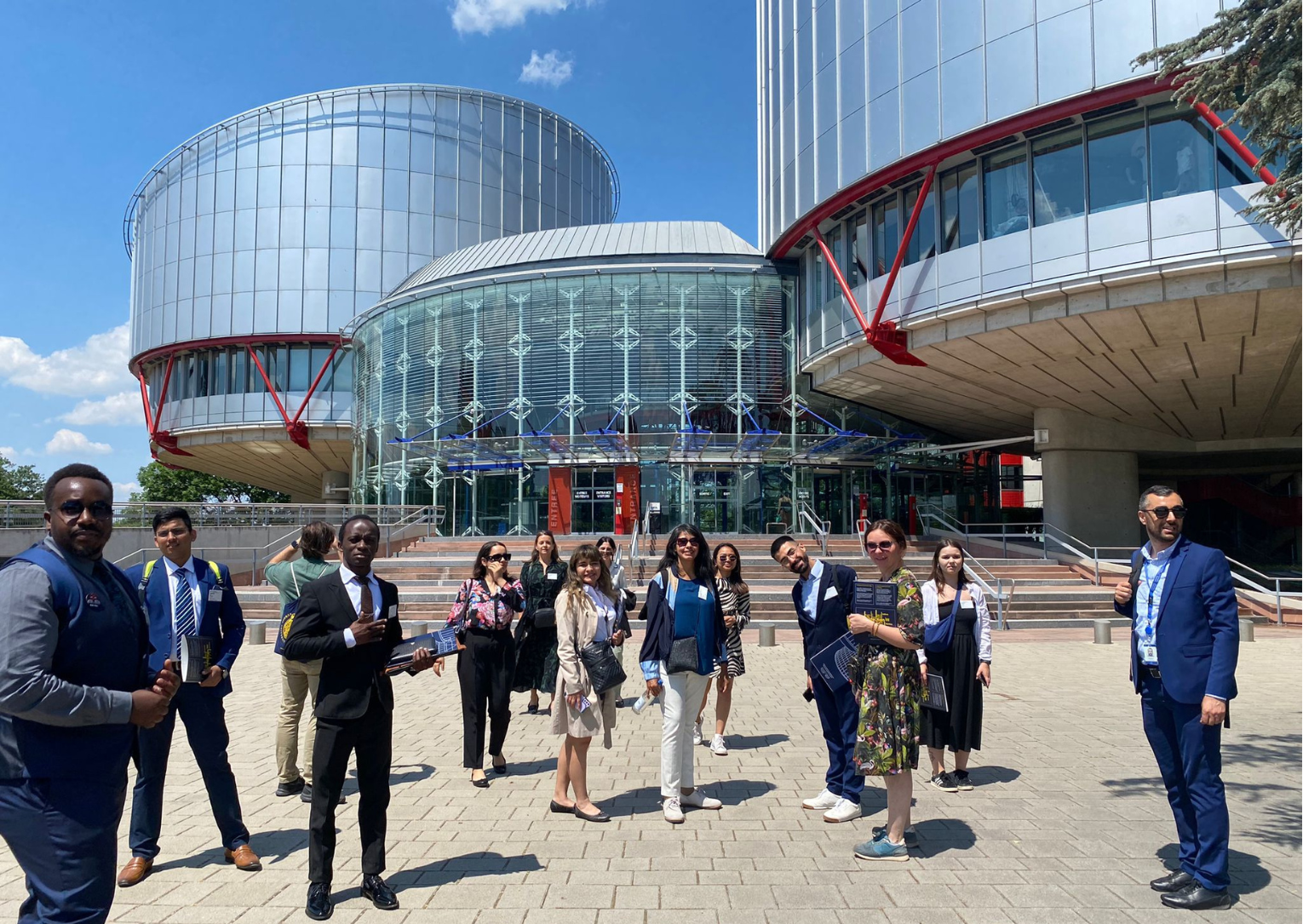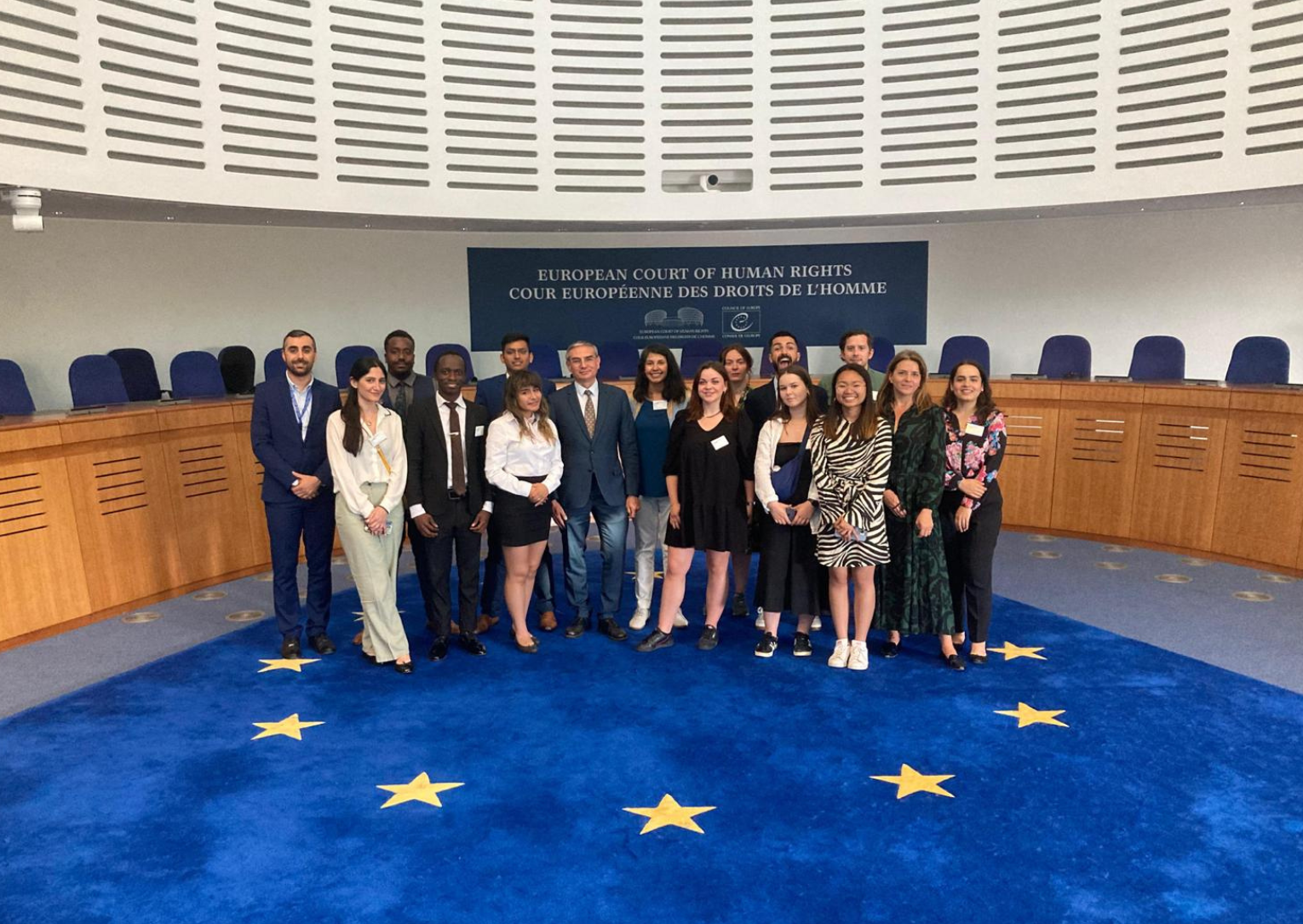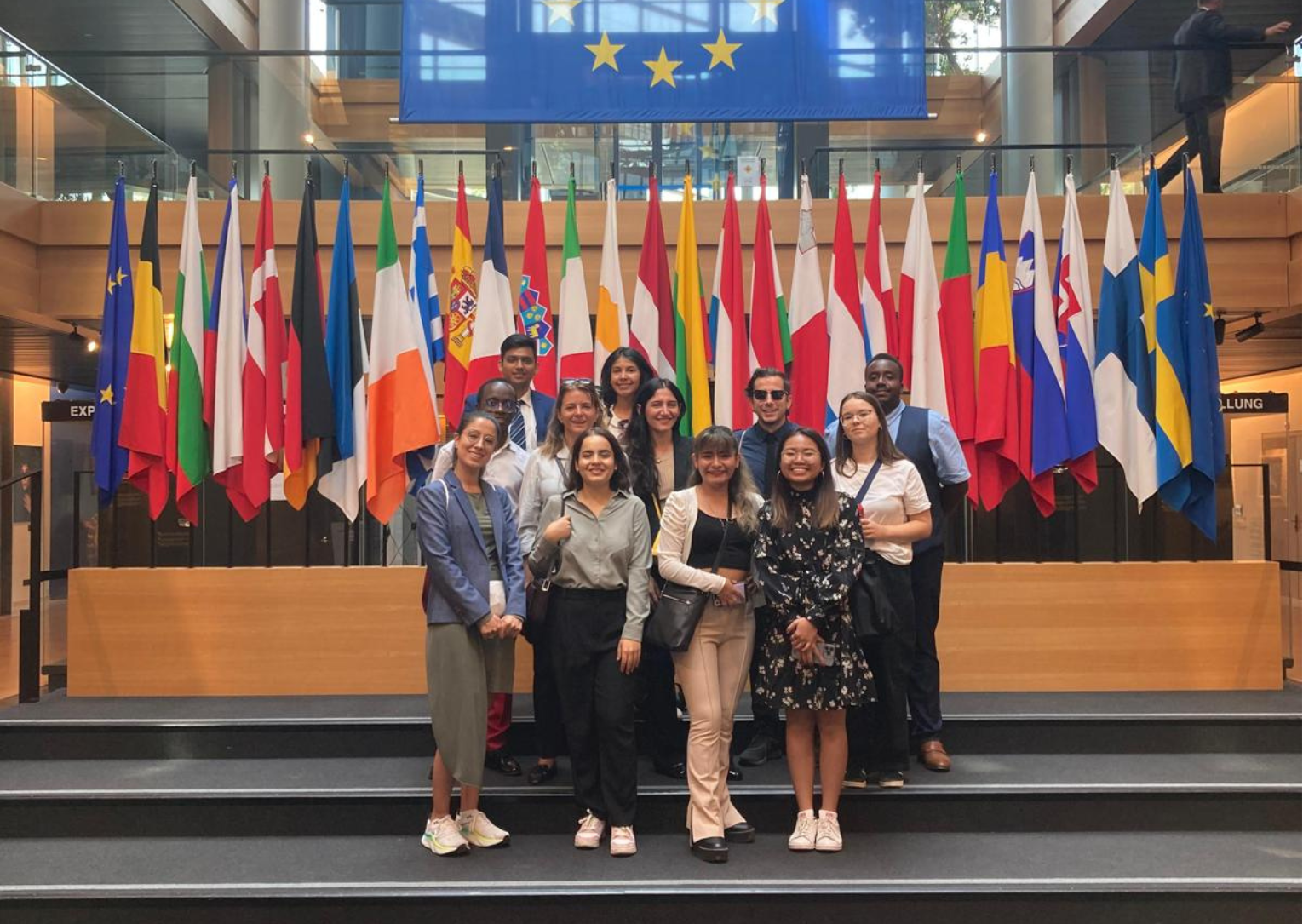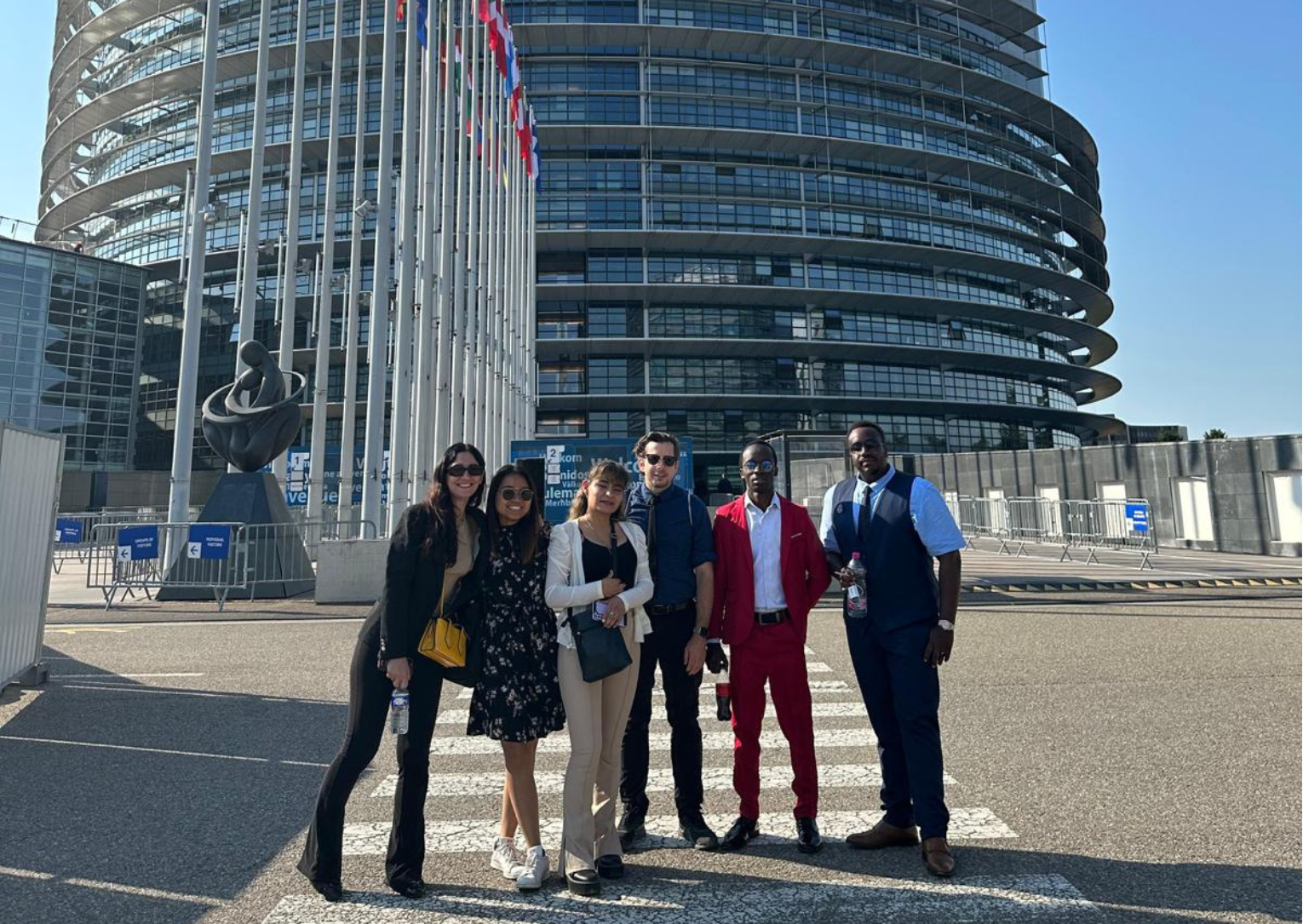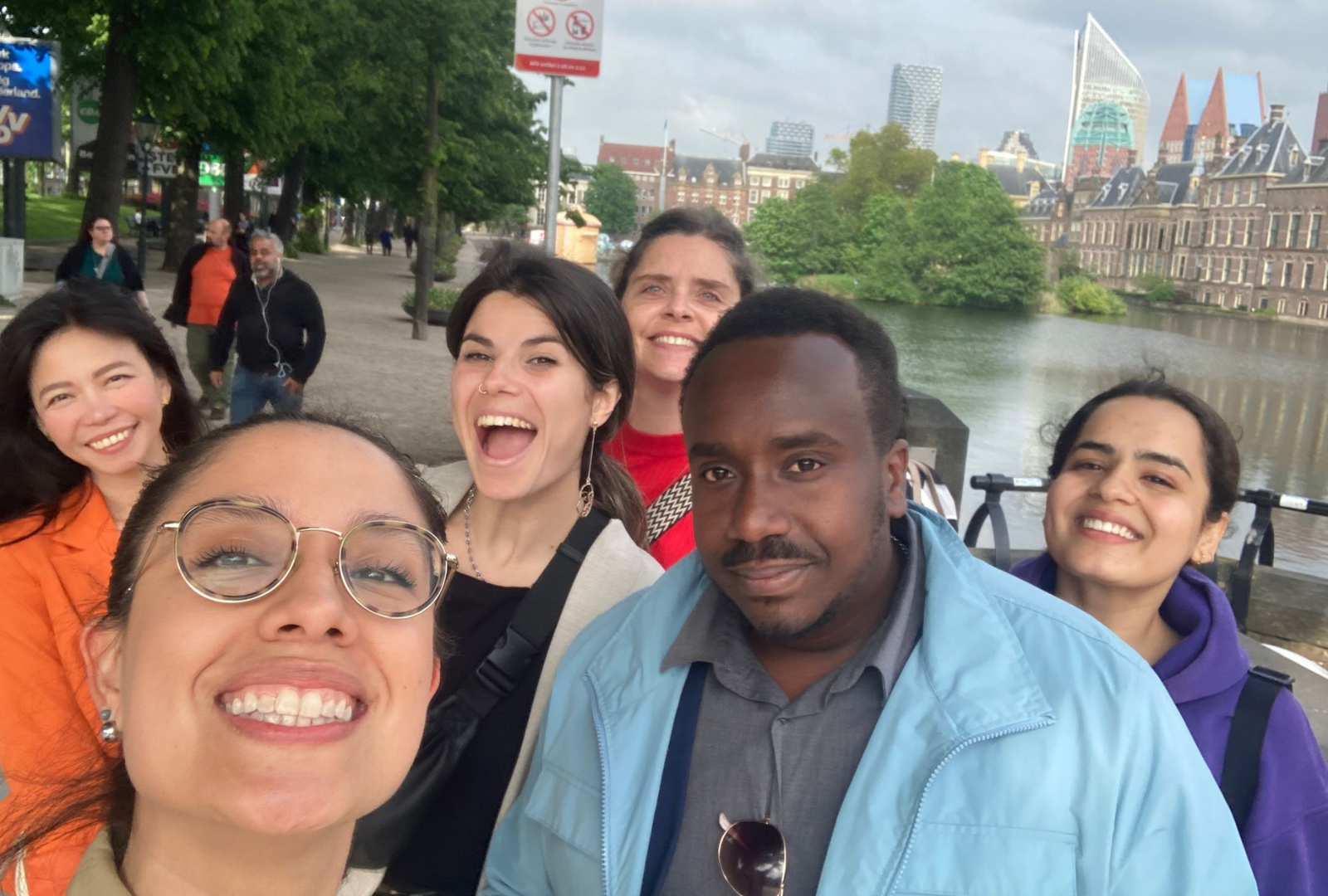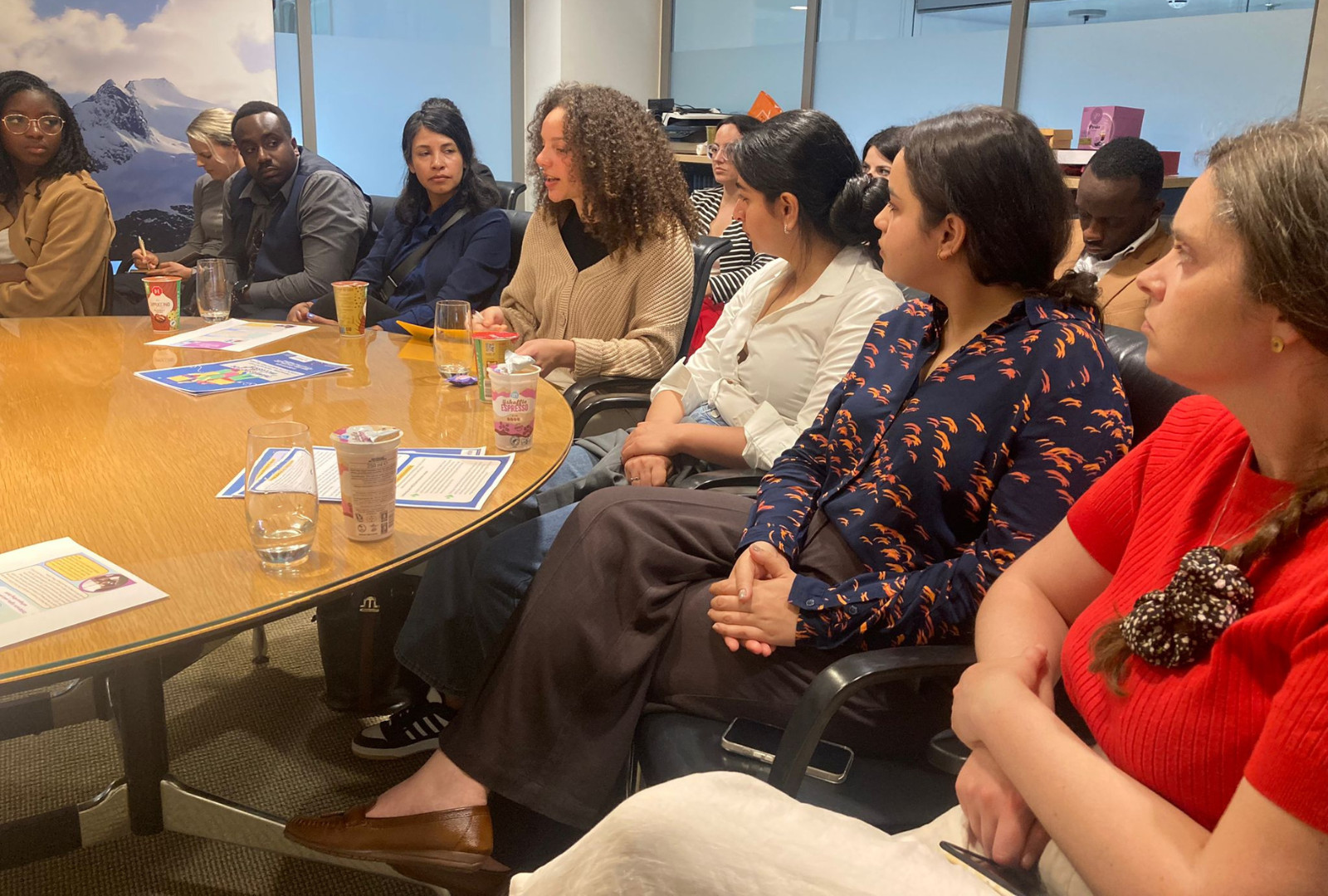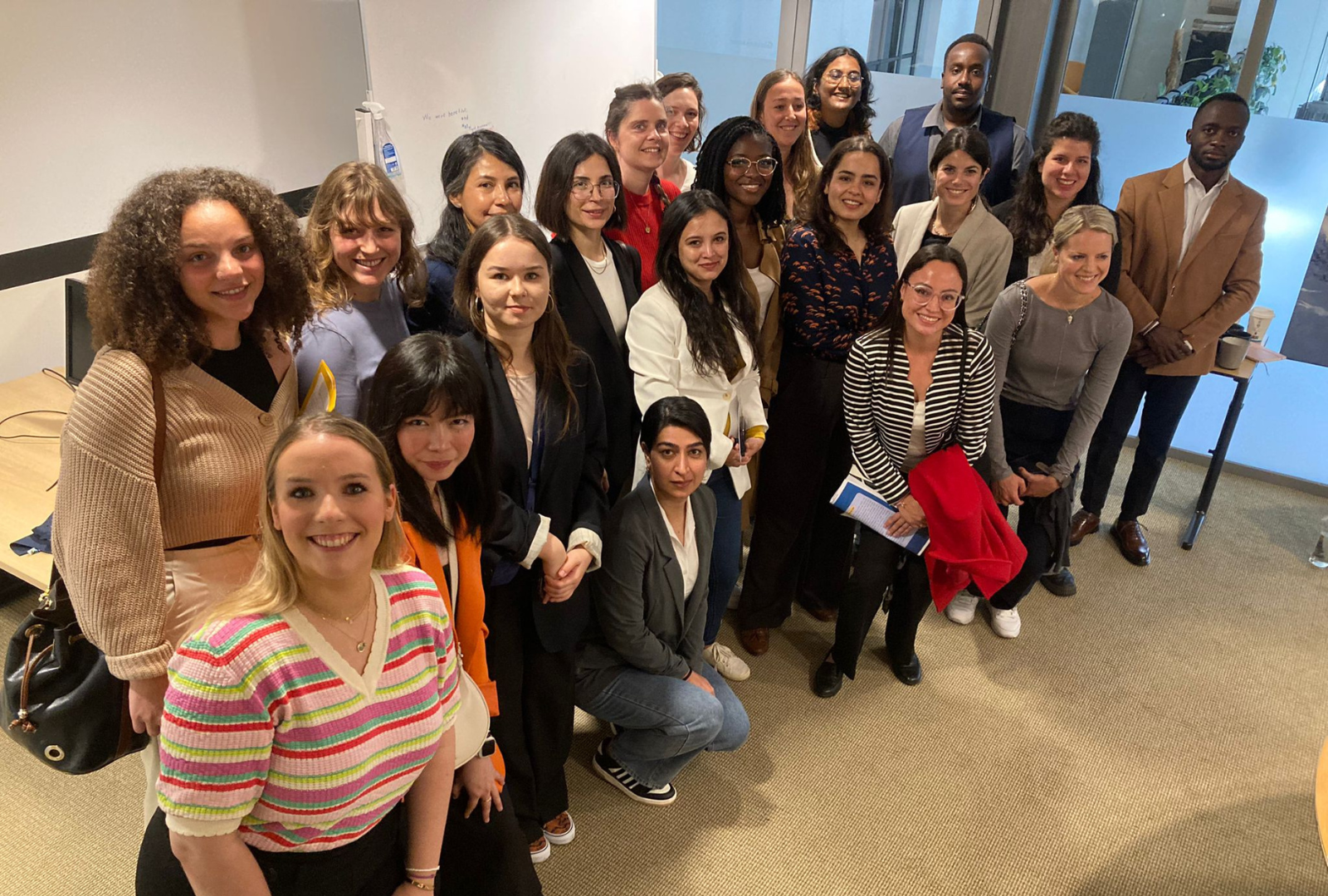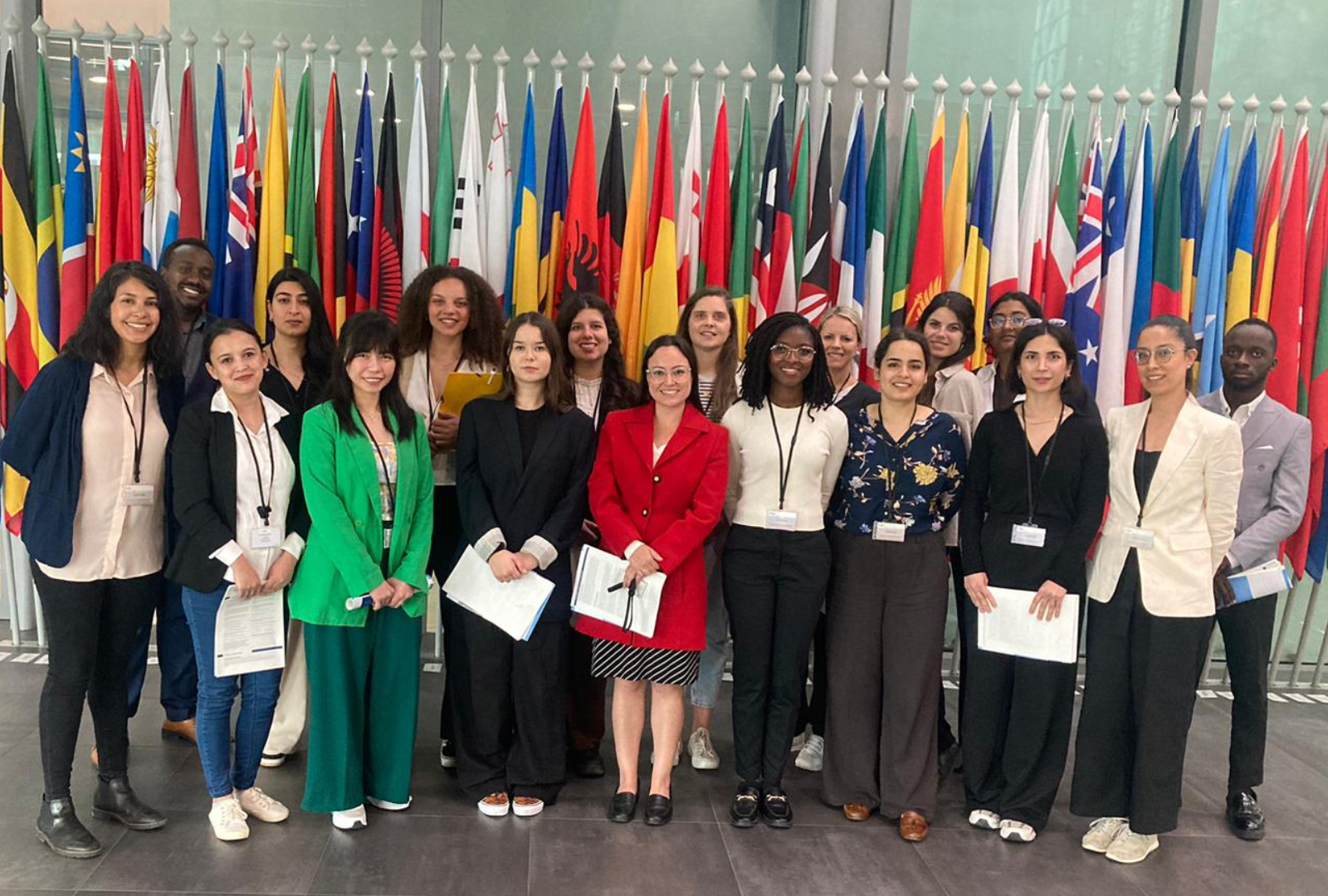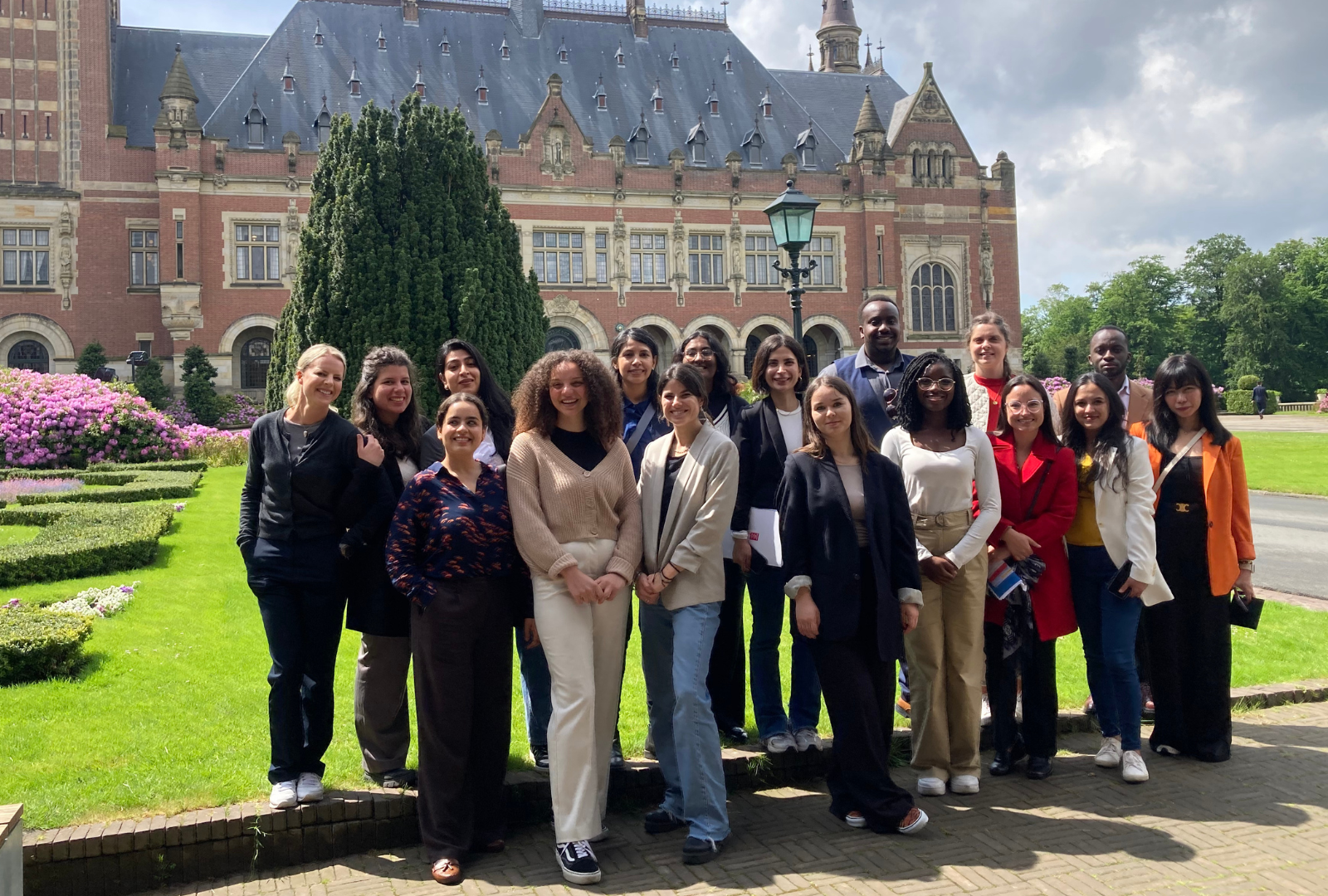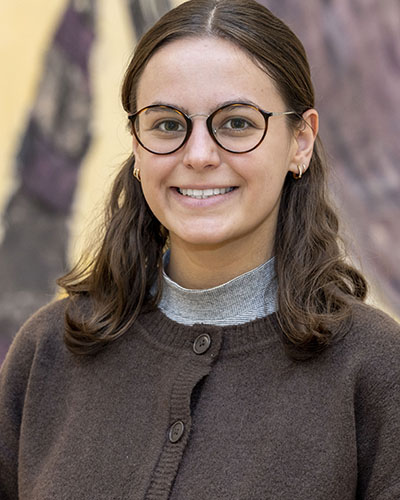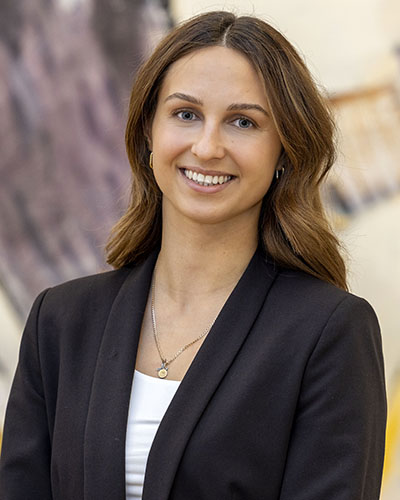Master of International Human Rights and Humanitarian Law
Master of International Human Rights and Humanitarian Law
The IHL Masters Programme provides advanced 3-semester postgraduate study of the international protection of fundamental human rights and humanitarian law, culminating in a Master of Laws (LL.M). It can also be undertaken in part-time mode over 6 semesters.
Programme Highlights
This unique programme integrates protection of human rights in times of peace with protection during situations of armed conflict, combining traditional international human rights law with international humanitarian law, taking in problems of terrorism, civil war, peace-keeping missions, and other humanitarian interventions.
It provides solid theoretical foundations and practical skills, preparing for career opportunities in policy-making, international or national public service, public or private legal practice, non-governmental organisations both International and national, or in academic teaching, research and publication.
Key Features
- Practical application: development of practical skills in applying international legal standards of protection to particular circumstances, for example in court proceedings, public administration and other institutional settings, forensic investigation, conflict resolution, peace negotiation and post-conflict transition.
- Comprehensive knowledge: deep understanding of international legal frameworks for individual protection, spanning the full range of circumstances from peace to declared warfare, addressing philosophical, political, and historical foundations.
- Intercultural communication: enhancement of multicutural communication competences and awareness, and sharing of knowledge and experience, through intensive interaction in a distinctive multinational setting of students and professors.
- Research abilities: strengthening of skills and techniques needed in academic and scientific investigation and research, report preparation, policy advice, and scholarly publication.
- Legal expertise: comprehensive attention to international rights and guarantees, and their protection and enforcement through diverse remedial regimes, institutions, and procedures.

Admissions
Winter Semester 2026/27, beginning 1 October 2026.
- Early admission deadline: 1 August 2026, 23:59 CET (recommended for students needing a visa for Germany). Apply here!
- Regular admissions deadline: 1 September 2026, 23:59 CET. Apply here!
- University degree in law, or equivalent qualification
- Adequate ability in English, both spoken and written, sufficient for reading and understanding academic literature, writing scholarly papers, and engaging competently in postgraduate discourse; evidenced by:
- test result of at least 93 in TOEFL IBT, 180 in Cambridge Advanced Certificate (C1), or average 7 in IELTS (with not less than 6,5 for each component); or
- at least four years school education in English; or
- equivalent evidence, for example, school education, university study, or professional work experience in English.
German language proficiency is not required for the IHL programme.
- High level of motivation to participate in the IHL programme
- At least one year’s practical professional experience
- whether a paid or unpaid (volunteer) position
- exemption from this requirement may be granted by the Admissions Board
- Tuition fee payment in accordance with the Fees Regulations of the Viadrina European University.
The following documents need to be submitted with the application:
- curriculum vitae (CV) (in English; maximum 4 A4 pages);
- certified copy of all university degrees held, together with certified academic transcript for all subjects and grades (in English, German or French);
- proof of competence in the English language ― official certificates or other appropriate written evidence (see admission prerequisites above for details);
- evidence of relevant practical experience ― written confirmation from a relevant employer or organisation, or application for exemption (see admission prerequisites above for details);
All required documentation should be properly scanned and submitted in PDF format.
Applications without the complete required documentation cannot be considered.
Degree awarded
1st semester (full-time): Coursework (30 ECTS)
2nd semester (full-time): Coursework (30 ECTS)
3rd semester (full-time): Internship (15 ECTS) & Master Thesis (15 ECTS)
Students successfully completing the full-time 3-semester or part-time 6-semester programme are awarded the degree of Master of International Human Rights and Humanitarian Law (LLM) by the Faculty of Law, Viadrina European University Frankfurt (Oder).
1st semester (full-time): Coursework (30 ECTS)
2nd semester (full-time): Coursework (30 ECTS)
Students successfully completing the full-time 2-semester, or part-time 4-semester programme are awarded the academic qualification of Diploma of International Human Rights and Humanitarian Law (Diploma IHL) by the Faculty of Law, Viadrina European University Frankfurt (Oder).
Single semester (full-time): Coursework (30 ECTS)
Students successfully completing the full-time 1-semester or part-time 2-semester programme are awarded the academic qualification of Certificate of International Human Rights and Humanitarian Law (Certificate IHL) by the Faculty of Law, Viadrina European University Frankfurt (Oder).
Curriculum
The IHL masters programme is 3-semester Master of Laws (LLM) (full-time), with semesters 1 and 2 reserved for coursework, and semester 3 for a Master's Thesis and an internship within the programme focus. The entire full-time programme should be completed in approximately 18 months.
A part-time option allows the period of study to be extended to up to 6 semesters. This flexible variation may particularly benefit for students intending to work and study at the same time.
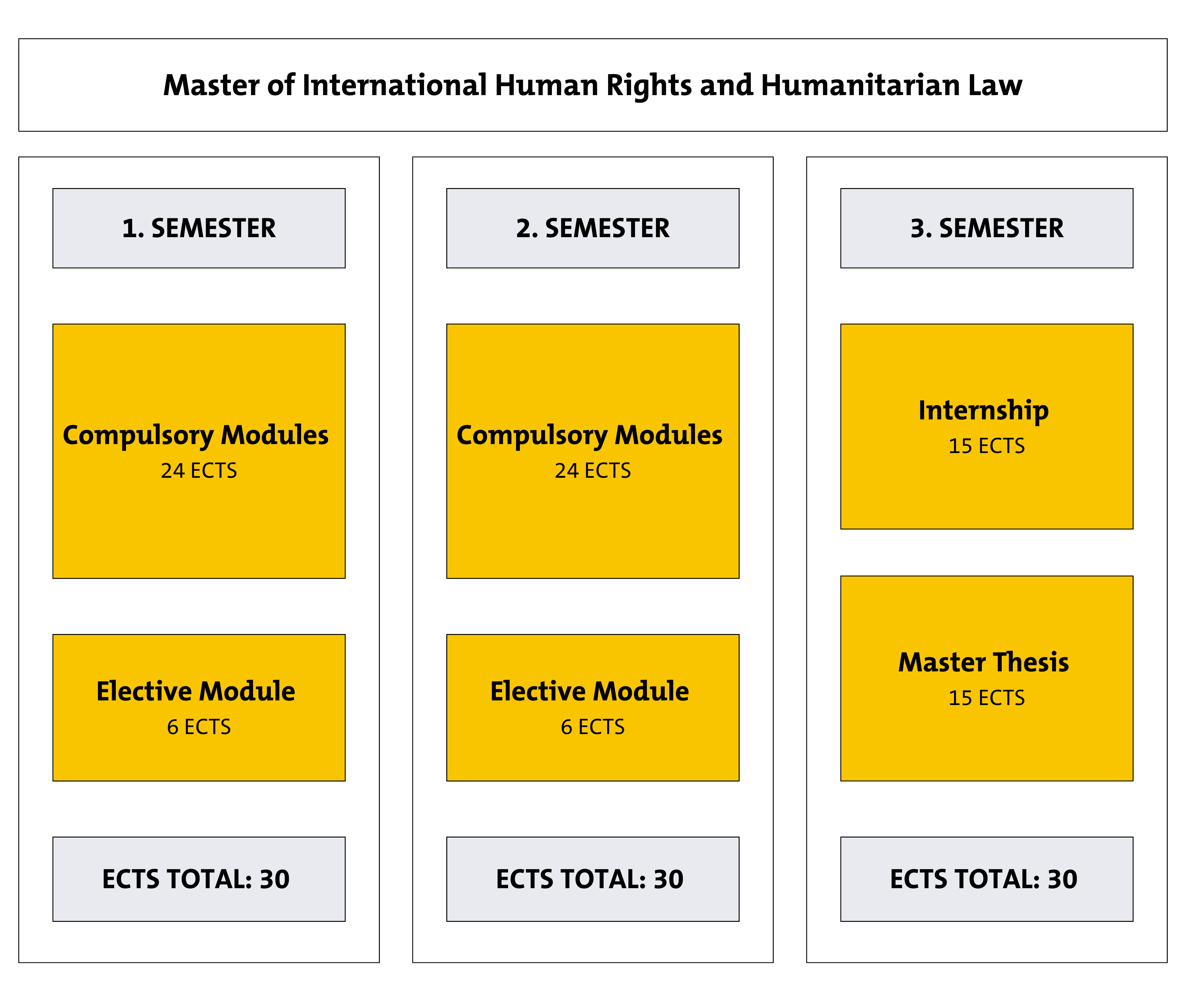
General coursework framework
Coursework is undertaken in both academic Winter and Summer Semesters. IHL coursework consists of both face-to-face and distance-learning elements. The former, lectures and seminars, require personal attendance during the first 10 weeks of each semester (April-June in summer; October-December in winter). These presence sessions take place on-campus at the Viadrina European University in Frankfurt (Oder), Germany .
Students are expected to prepare intensively for lectures and seminars, and to do individual follow-up study through distance learning afterwards.
Each coursework semester is organized in three phases:
- Phase 1: weeks 1-10, lectures, seminars & first-attempt exams on campus
- Phase 2: weeks 11-20, online assignments (first-attempt essays)
- Phase 3: weeks 21-26, re-sit exams on campus & re-sit essays
Coursework module overview:
Winter Semester (30 ECTS)
- IHL010 Introduction to international human rights and humanitarian law
- IHL020 Civil and political rights
- IHL030 Social rights, and prohibition of discrimination
- IHL110 Conflict management, and current issues in international humanitarian law
- IHL120 Mass violence, and legal responses
Summer Semester (30 ECTS)
- IHL040 Rights of disadvantaged groups
- IHL050 Law of refugees, and migration
- IHL060 Individual (criminal) responsibility, and state responsibility
- IHL210 Implementation, and representation of interests
- IHL220 Constitutional principles
The internship is equivalent to 15 ECTS. The purpose of internship is to provide an experience in which the learning from the coursework of the programme can be put into practice. It has to be undertaken with an organisation which has connection to the topics and modules of the programme. This can cover a wide variety of organisations, both international and national, public or private, including the following types:
- international or national human rights bodies (for example, within the UN, or the Council of Europe or other regional human rights systems)
- NGOs (for example, amnesty international; Human Rights Watch), whether international or national.
- organisations concerned with humanitarian issues and aid (for example, UNHCR, Red Cross);
- bodies dealing with conflict management and international negotiation;
- police forces or military/defence institutions (depending to some extent on the particular focus of the activities carried out)
- academic bodies and research institutes focused on human rights (so long as this involves not simply attending further coursework on the subject but rather involves a practical focus on more specific issues or problems);
- a public prosecutor's office or a law firm (with a focus on human rights or related matters); or certain branches of public administration (for example, child welfare or anti-discrimination).
This list is not exhaustive, but gives an idea of the types of areas and activities which should be considered.
IHL students that have worked (or are still working) in a position which would be suitable for an internship, can have that experience recognized for the internship requirement. The determinations of the equivalence will consider the nature of the organisation, the type of work done, the length of time and how long ago the activity occurred. Even voluntary work with a suitable organisation, considered on the same basis, may be regarded as equivalent.
The IHL Masters Thesis (15 ECTS) demonstrates that the student is capable of independent academic research in the field covered by the IHL programme, and of presenting the results of this work in a form which meets the standards of postgraduate achievement. The thesis work is carried out, within a specified period, under the guidance of a supervisor assigned by the Chair, IHL Examinations Board.
Study Trip
A study trip takes place in each academic year. This group activity provide IHL students with the opportunity for direct contact with, and observation of, the work of human rights professionals and institutions. Organizations visited may include European or international human rights bodies (for example, UN bodies and agencies, the Council of Europe, the European Court of Human Rights, the International Criminal Court, the International Court of Justice), various NGOs (for example, the Red Cross), media organizations, legal consulting bodies, and more.
The study trip typically takes place over 2-3 days, with expenses partially covered by the IHL programme. Participation in the study trip is voluntary, and places available may be limited in number for a given excursion. The IHL Masters Office takes responsibility for the organization of the study trip.
Fees and Scholarships
LL.M. (90 ECTS points) 7.900,00 €
Diploma (60 ECTS points) 7.320,00 €
Certificate (30 ECTS points) 3.820,00 €
Tuition fees for each selected IHL programme qualification variant (LLM, Diploma, or Certificate) must be paid fully, in advance of starting the programme.
In addition to the respective tuition fees, a standard semester charge (currently approximately 380 €) applies for each semester. This administrative charge includes the cost of a student pass for public transport in Germany.
Additional fees apply, in accordance with University regulations, for additional semesters (beyond the standard full-time or part-time length) and/or for retaken (failed) courses.
Retake a course of 4 ECTS points 490,00 €
Retake a course of 3 ECTS points 370,00 €
Additional semester (1st and 2nd semester) 800,00 €
Additional semester (masters thesis and/ or internship) 400,00 €
Scholarships, stipends, or other forms of financial assistance may be available from external sources. These cannot be provided by the Viadrina European University or the IHL programme itself.
Applicants in need of financial assistance are strongly advised to make their own efforts and inquiries (especially with relevant public institutions, NGOs, foundations, and private bodies in their own country). Wherever possible, the Viadrina and the IHL programme will assist applicants to obtain external financial support, for example, by providing information and/or suggestions, or through a letter of support confirming admission or enrolment in the programme.
Regulations
Students of the Master IHL Program must comply with both, the Viadrina University regulation (ASPO) as well as the study-specific regulation (SPO).
Graduates' Opinions
I am deeply passionate about both Human Rights and International Humanitarian Law, because they give language and legal grounding to experiences that are often silenced.
Nadia Firdous, Human Rights Lawyer | Legal Research & Advocacy High Court of Jammu, Kashmir & Ledakh
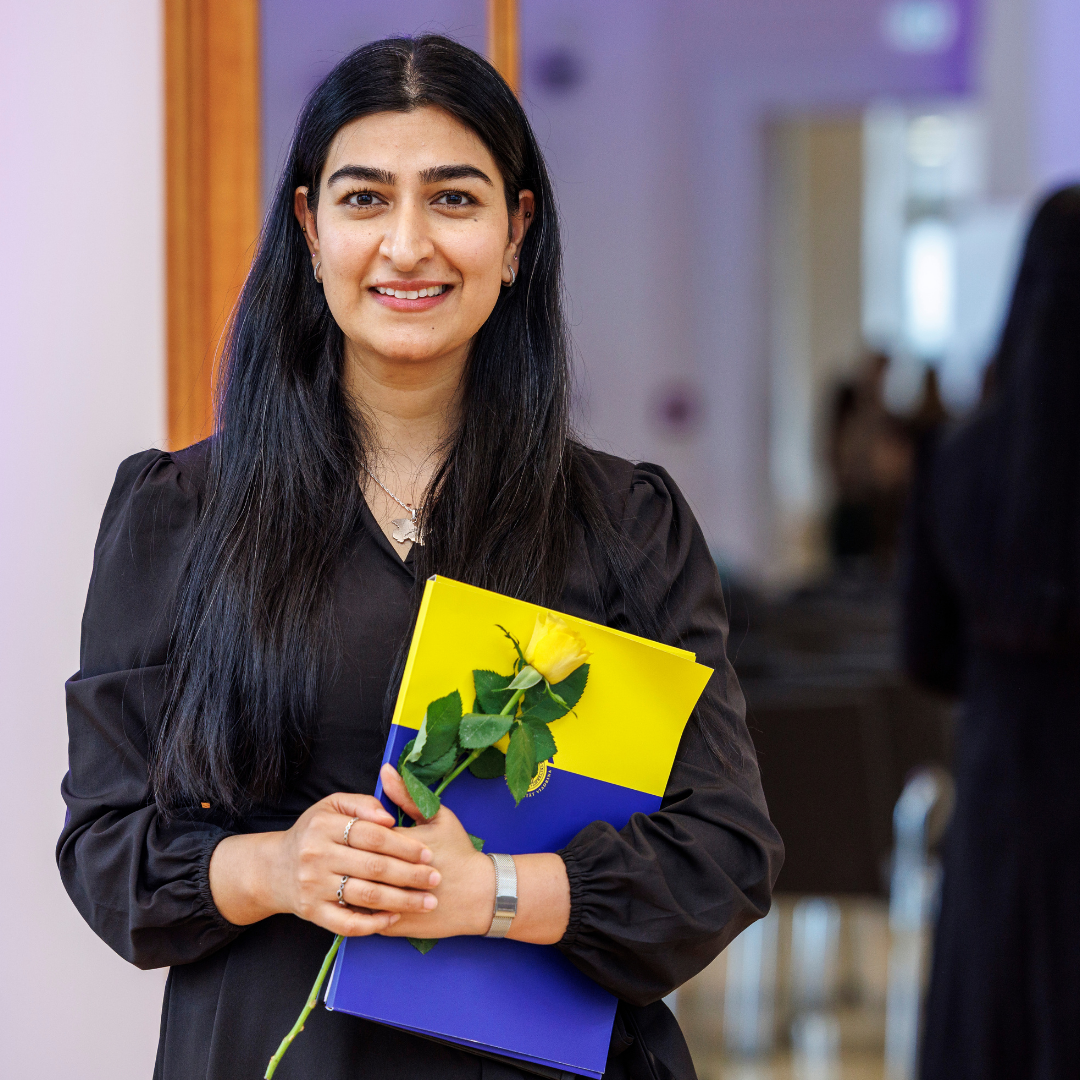
Viadrina / Heide Fest
The program offers a unique content that is rarely found in European universities. One subject that particularly interests me within this program is humanitarian law. This area of study is diverse and extensive, providing ample opportunities for research. I was eager to study internationally, and I was fortunate enough to secure an internship opportunity in the USA. I spent ten months in New York.
Haider Ali, Entrepreneur and managing director of Reliance Tex & Tech Ltd in Bangladesh
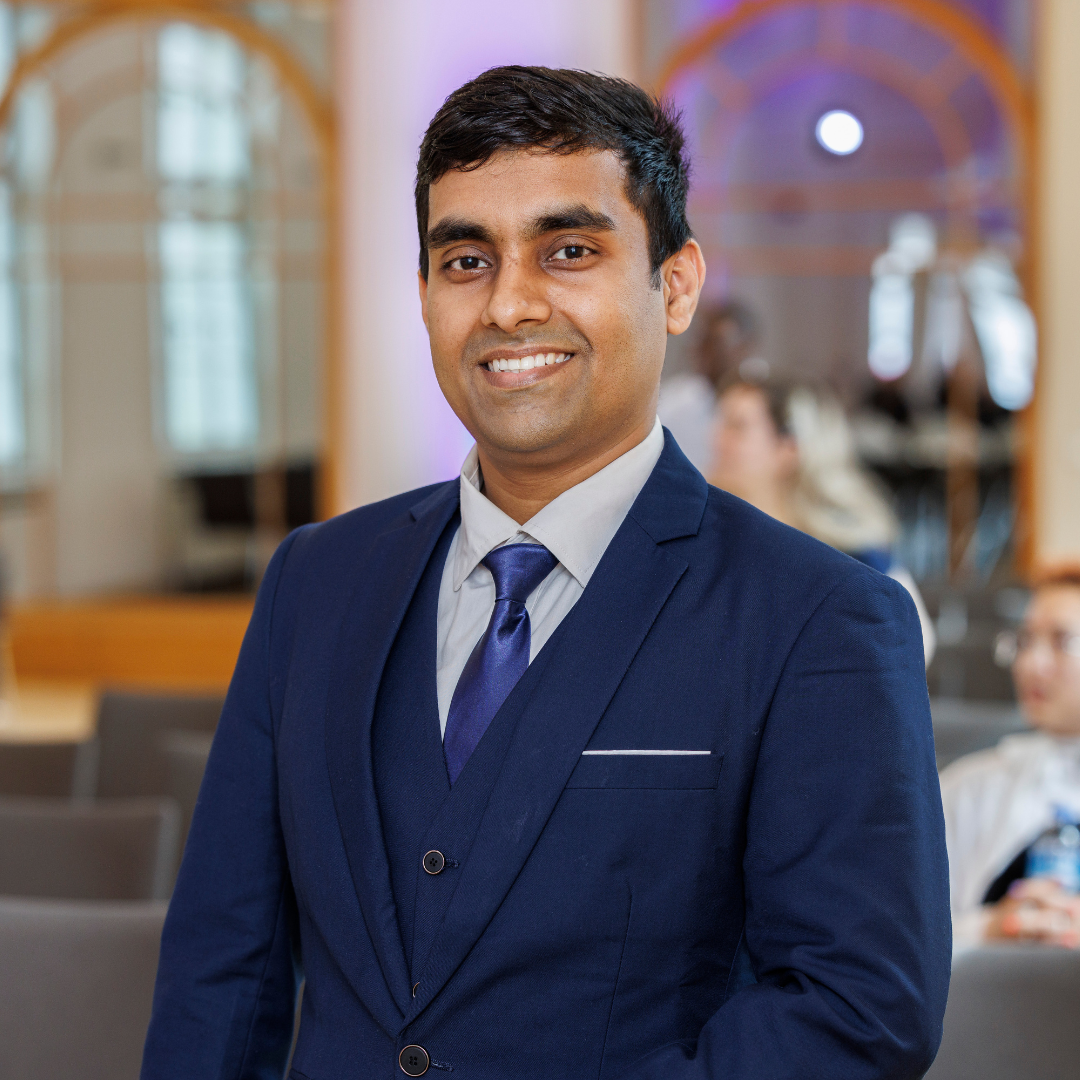
Heide Fest
The most important thing I have learned is the importance of applying human rights and humanitarian principles in a contextual and people-centered way. The program has strengthened my ability to critically assess legal frameworks, engage with international standards, and advocate effectively for justice and the rule of law, skills I will continue to apply in my work at the Judiciary.
Fatoumatta Juldeh Camara, Judiciary of The Gambia, Hurricane Magistrate and Legal Researcher
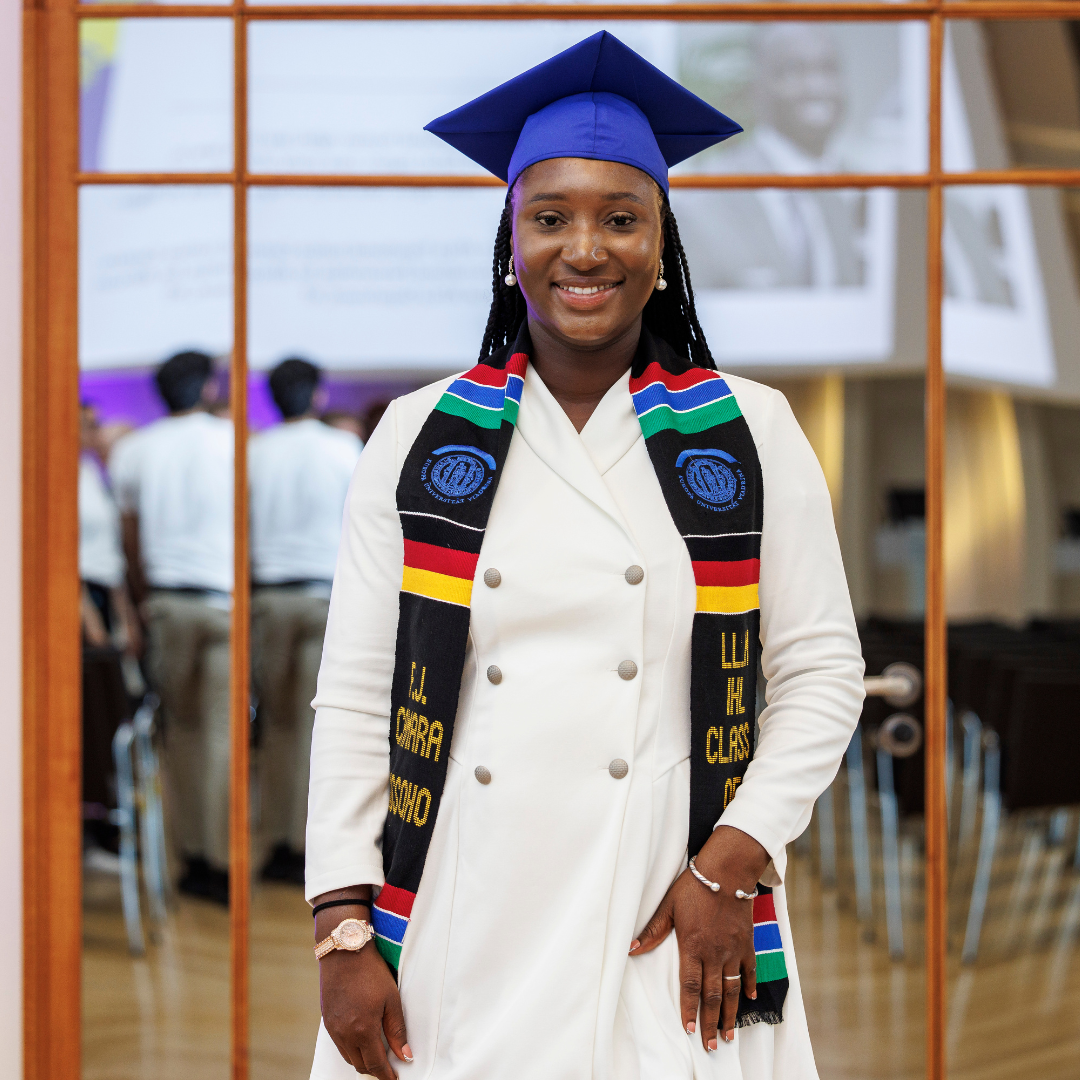
Heide Fest / Viadrina
I sought to delve into international human rights law. The experience has equipped me with a profound understanding in bridging the gap between my non-legal background and the field of human rights Law.
Naoufal Bouzid, Partnerships Manager at CareerFoundry, Marocco
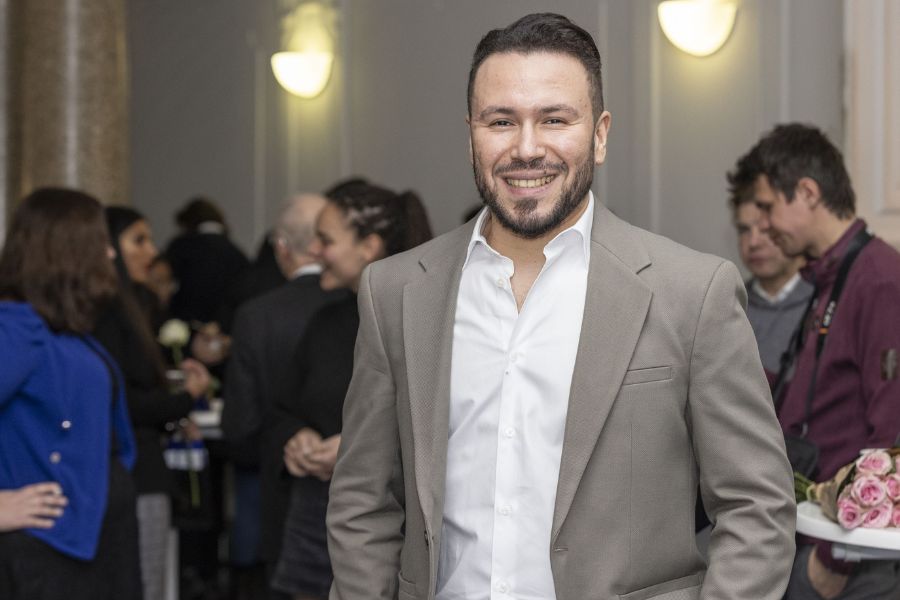
Heide Fest / Viadrina
Studying the International Humanitarian Law at Viadrina was more than academic - it was a global lab for ideas, law, and impact. I thrived in its dynamic, cross-border environment where theory met advocacy, and diverse voices shaped sharp, real-world thinking. It didn’t just teach me law - it inspired purpose
Vaishali Singh Human Rights Officer at Qatar Centre for Peace and Democracy
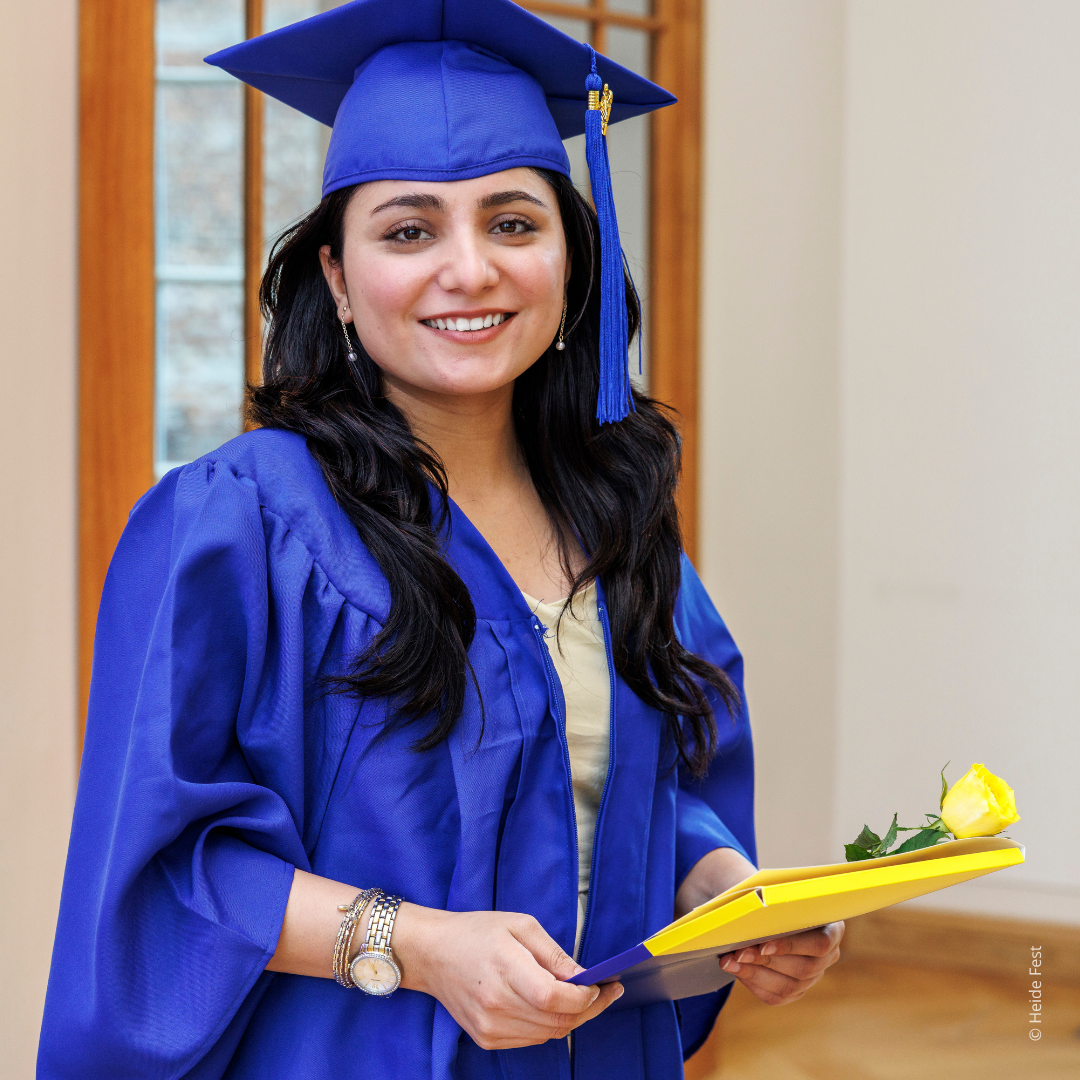
Viadrina / Heide Fest
General Information and Important Dates
On this page, you will find key infromations to support your arrival and settling at European University Viadrina and in Frankfurt (Oder).
The page provides guidance on topics such as VISA, travel and arrival procedures, health insurance, and other important matters.
Winter Semester 2025/2026
Semester period: 01.10.2025 - 31.03.2026
Lecture period: 13.10. 2025 - 27.11. 2025
Orientation week: 08.10.2025 - 10.10.2025
Graduation Ceremony: 26.11.2025
Exams period: 05.11. | 07.11. | 03.12. | 05.12.2025
Resit exams: 10.03. | 20.03. | 25.03. | 27.03.2026
Christmas holiday at the University: 22.12.2025 - 02.01.2026
Public holidays: 03.10.2025 | 31.10.2025 | 25.12.2025 | 01.01.2026
FAQ
Yes. If you have previously studied in English, you must give details of this in the description/motivation section of your IHL admission application.
The details should include: the name of the university/other institution; full title of the course(s) of study (and code number, if any); the degree(s) awarded; date(s) of award; the length of course(s) taken (number of semesters, starting and finishing dates).
You must attach appropriate supporting documentation for this information. This must show clearly that the language of instruction and examination was fully or substantially in English. The supporting documentation should include an official letter from the institution(s) confirming all the information, together with copies of the relevant degree certificate(s) and transcript(s), and web addresses for relevant online information on the course(s) concerned.
Previous experience may include any form of practical experience: work/professional employment; internship; voluntary work, freelance work; any other relevant comparable activities. This does not have to be formal/paid employment.
In your application you need provide details of this: identify the organization(s)/employer(s), describe your activities/responsibilities, state the time periods (starting and finishing dates, number of hours).
You should attach appropriate supporting documentation from the organization(s) concerned, such as an official letter from your immediate supervisor or from the appointment’s office, which confirms your information.
Attendance at all coursework lectures and other IHL events is compulsory. It is strongly recommended that you live in Frankfurt (Oder) during the whole period of coursework study. Living in Berlin is possible, but that involves a lot of time every day commuting by train to attend lectures; transport problems lead to missed lectures and seminars.
Frankfurt (Oder) has six student residences. You can apply for accommodation in one of these through the Studentenwerk Frankfurt Oder (Student Union).
Another accommodation option in Frankfurt (Oder) is the Verbuendungshaus fforst e.V. (not managed by the Student Union).
You are entitled to a refund if your visa application is refused. To claim a refund you must submit evidence that you made a visa application (you must provide a copy of this, showing where and the date) and a copy of the official rejection letter from the Germany Embassy. No refund is possible without this documentation, to be sent to the IHL Masters Office.
The IHL programme itself unfortunately cannot offer scholarships.
There are German foundations and other public bodies (DAAD or KAAD) which do offer scholarships for various study programmes, including IHL. Search online for information about these, and how to apply.
Scholarships, stipends or bursaries may be available from public national or regional bodies in your own country. Even private local organizations (for example, Rotary, some religious or charitable bodies, NGOs, even some employers) may be willing to support participation in an international programme such as IHL.
The IHL Masters Office can provide a letter showing you have been admitted to the IHL programme, where needed by a scholarship provider. Seek and apply for scholarship support very early, to avoid delay in starting in the IHL programme.
The program includes both face-to-face and distance-learning elements.
IHL coursework (lectures, seminars, workshop, examinations, and other academic events) take place in Frankfurt (Oder) during the first 10 weeks of each semester (April–June in the summer semester, October–December in the winter semester). All coursework session and events require personal on-campus attendance at the Viadrina European University, Frankfurt (Oder); strict attendance records are kept.
The remainder of each coursework semester is reserved for follow-up work via distance learning, using online resources.
Your work on the IHL Masters Thesis does not have to be conducted in Frankfurt (Oder). Conduct of the required internship occurs where the placement organization is located.
Part-time students attend on-campus lectures in Frankfurt (Oder) for three to four weeks each semester, usually in October/November or April/May. Classes are held two to five days a week from 9:00 AM to 4:00 PM.
Students can take up to four courses (2 modules) per semester and study alongside full-time students. The program lasts six semesters (3 years), with the last two semesters focused on an internship and a master’s thesis. Outside of on-campus weeks, attendance is not required between semesters.
A part-time study agreement must be arranged with the Examination Board before starting or when transferring from full-time status. Students can also apply for an extension of their study period if necessary.
What Part-Time study is not:
- it is not a remote or online-only program; on-campus attendance is required during specified periods.
- it does not offer a different set of courses or a separate timetable; part-time students attend classes with full-time students.
- it is not a condensed or accelerated option; students complete the same total coursework as full-time students over a longer period.
You can contact the IHL Masters Office by telephone (during regular office hours) or via email. You can also visit the Masters Office personally during regular office hours, but you are strongly recommended to make an appointment in advance in case staff need to be absent for any reason.
All contact information for the Masters Office, including details of office hours are available on the IHL website, and once you are enrolled, on the IHL Moodle webpages.
Academic Direction
IHL Academic Board
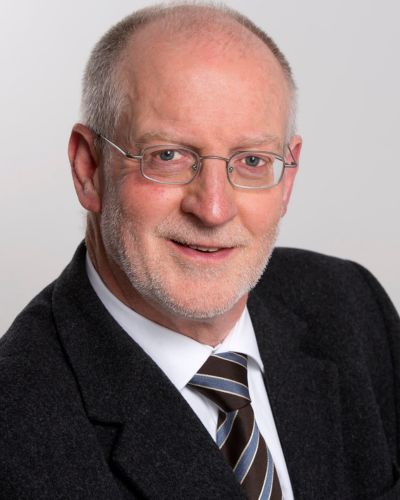
Viadrina European University Frankfurt (Oder)
Professor & Chair, IHL Academic Board
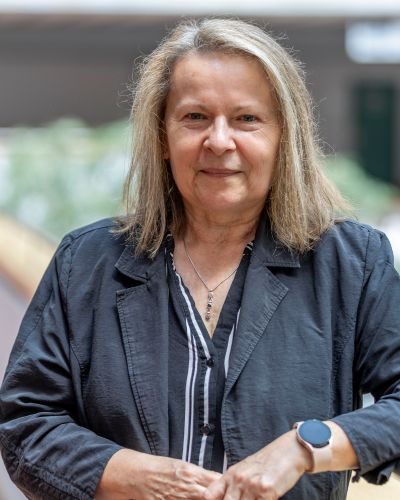
Viadrina European University Frankfurt (Oder)
Professor & Chair, IHL Examinations Board
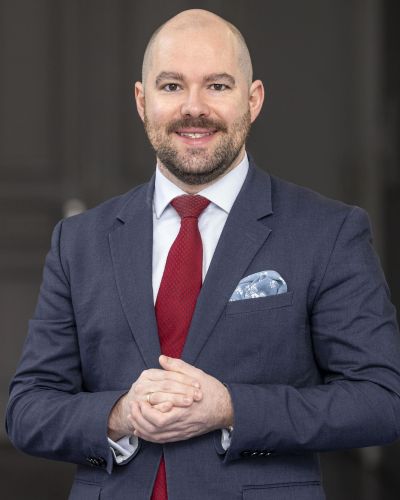
Prof. Dr. Markus P. Beham, LL.M. (Columbia)
Viadrina European University Frankfurt (Oder)
Professor & Chair, IHL Admissions Board
Contact Information
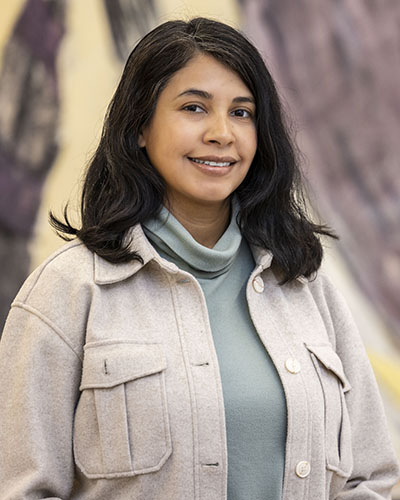
Linda Aguilar
Master's Officer
Room: HG 181
+49 335 5534 2624
admi-master-ihl@europa-uni.de
Office hours:
Wednesdays, 11:00 - 13:00
Phone hours:
Wednesdays, 14:00 - 16:00
Eileen O'Grady
Master's Office Secretary
Room: HG 181
+49 335 5534 2832
master-ihl@europa-uni.de
Office hours:
Tuesday and Thursday, 09:00 - 11:00
Phone hours:
Tuesday and Thursday, 09:00 - 11:00
Rieka Trottenberg
Graduate Assistant
master-ihl@europa-uni.de
Lidia Dabrowska
Graduate Assistant
dabrowska@europa-uni.de
Serafina Kern
Student Assistant
shk-master-ihl@europa-uni.de
sekern@europa-uni.de

